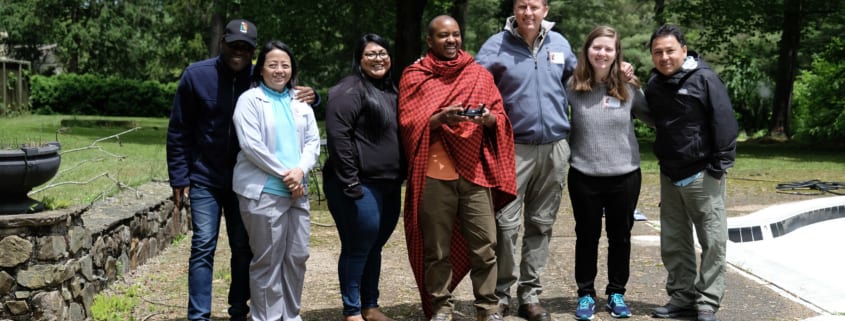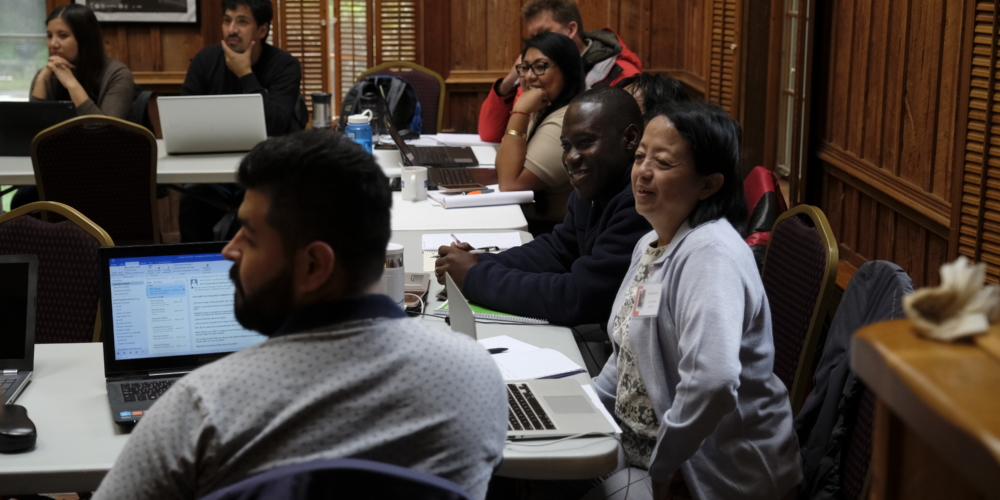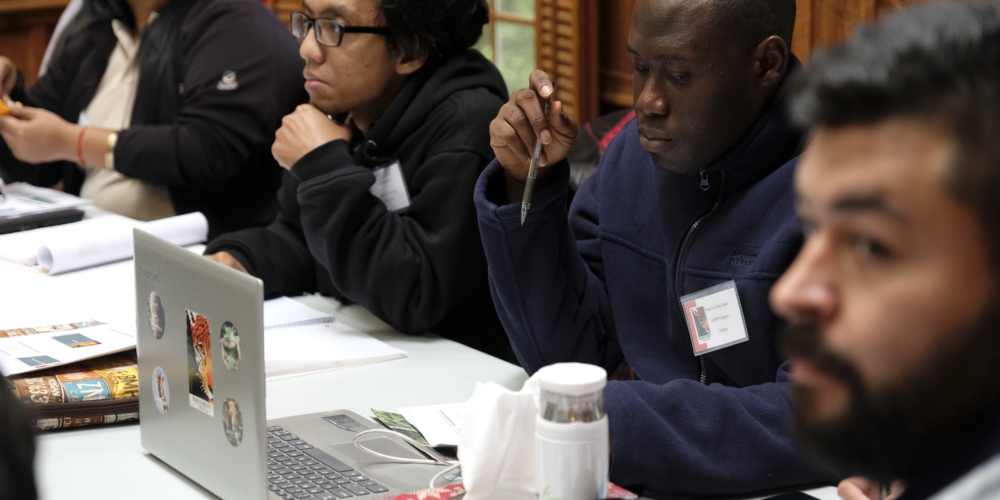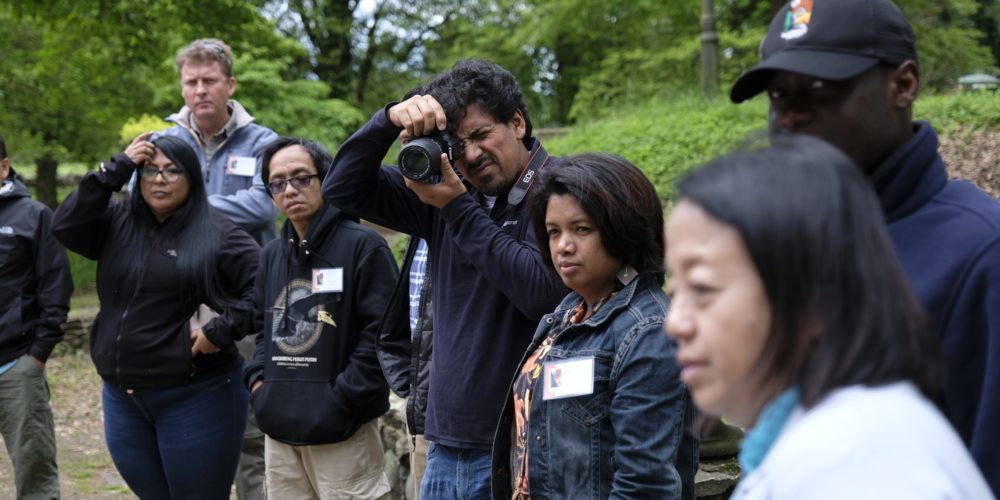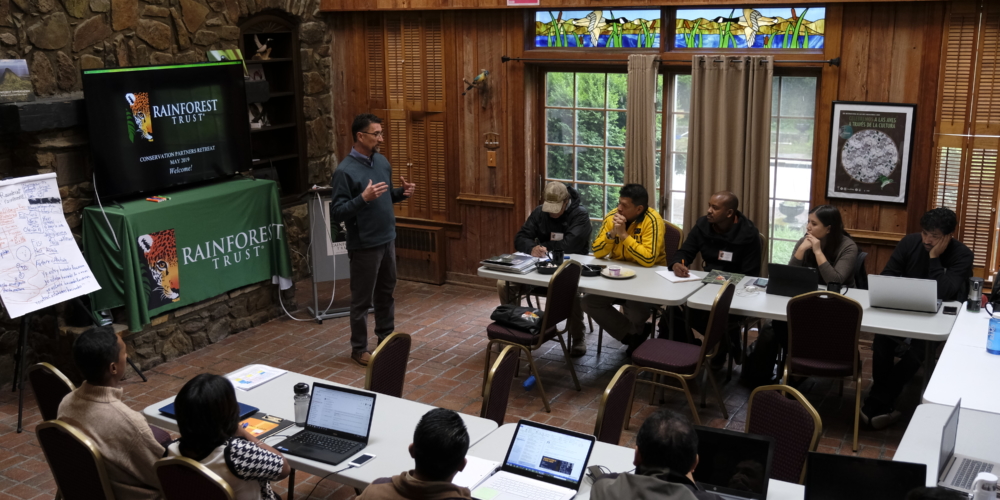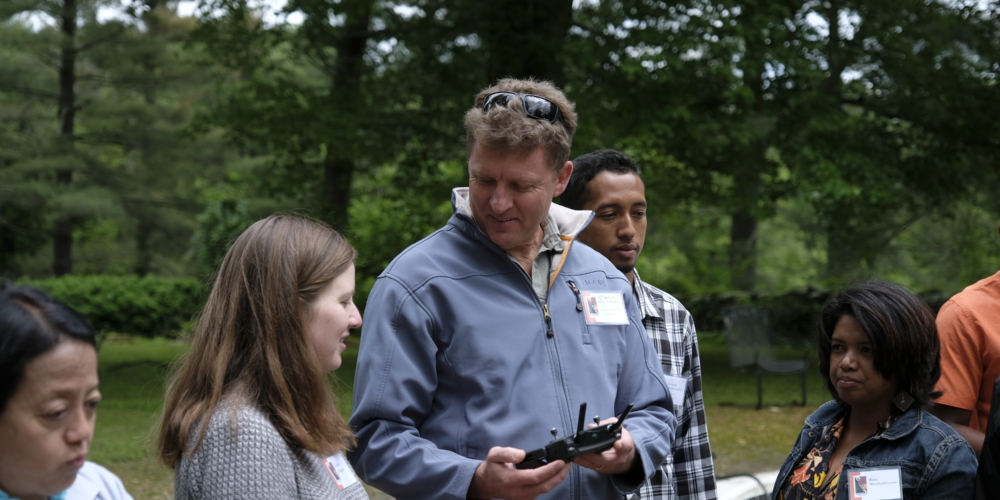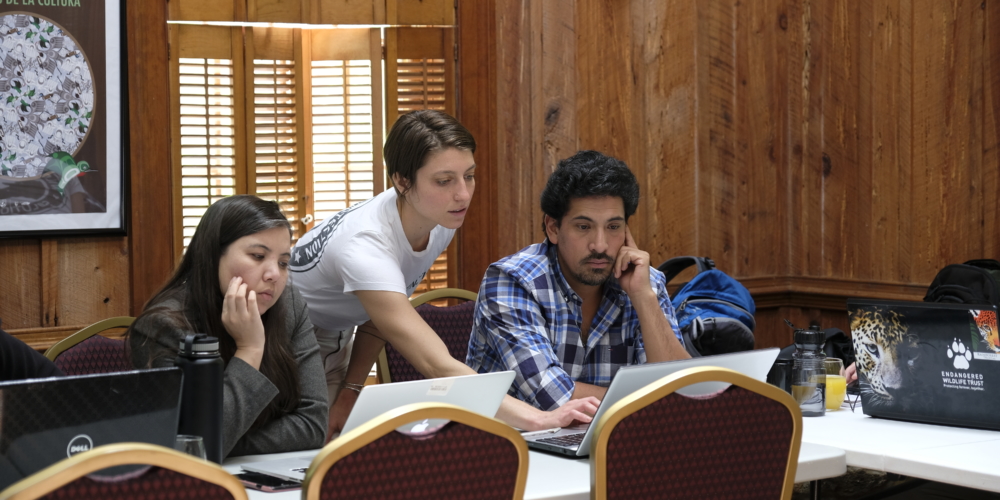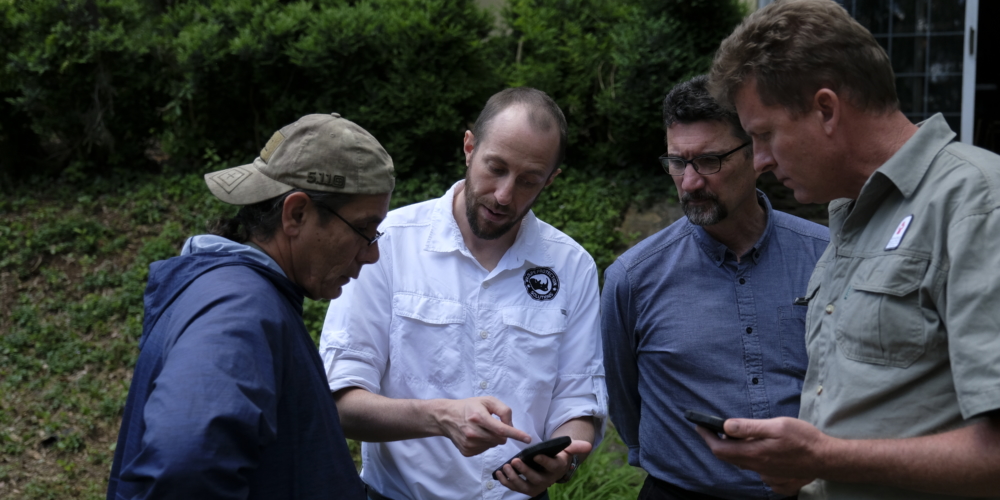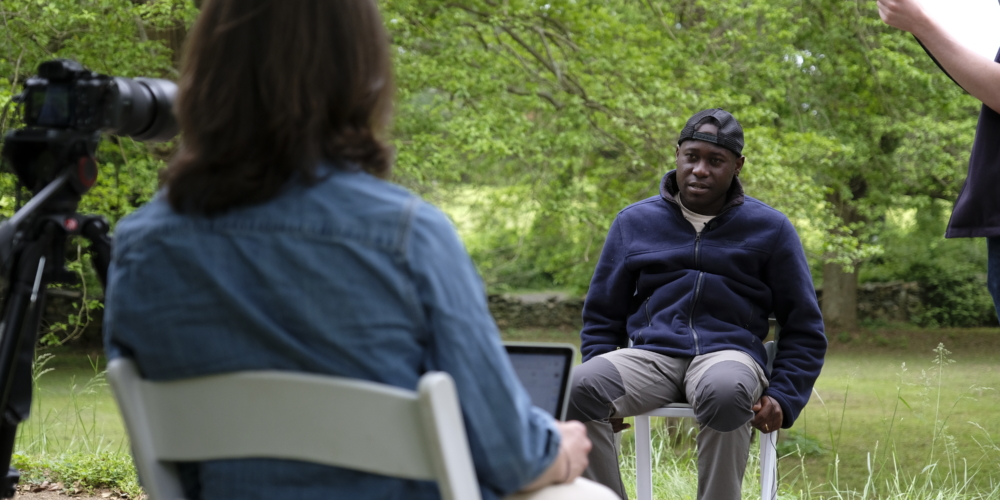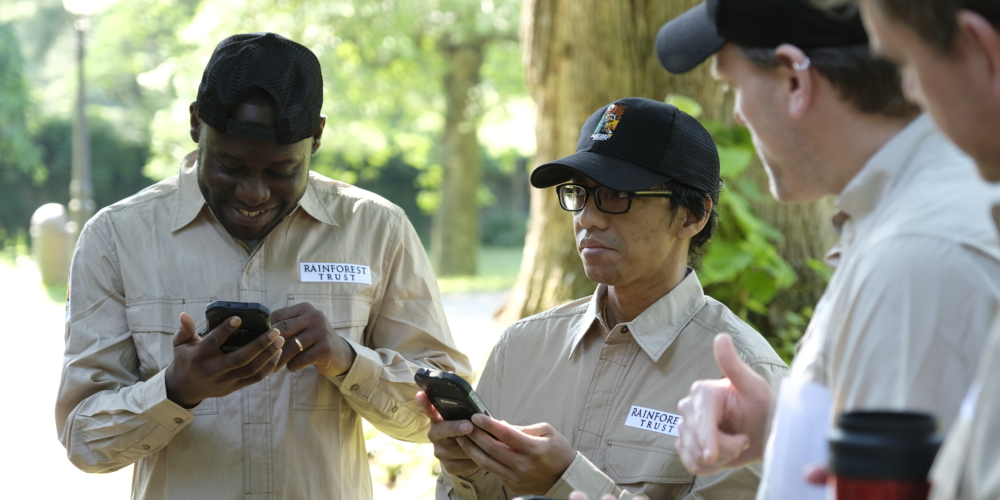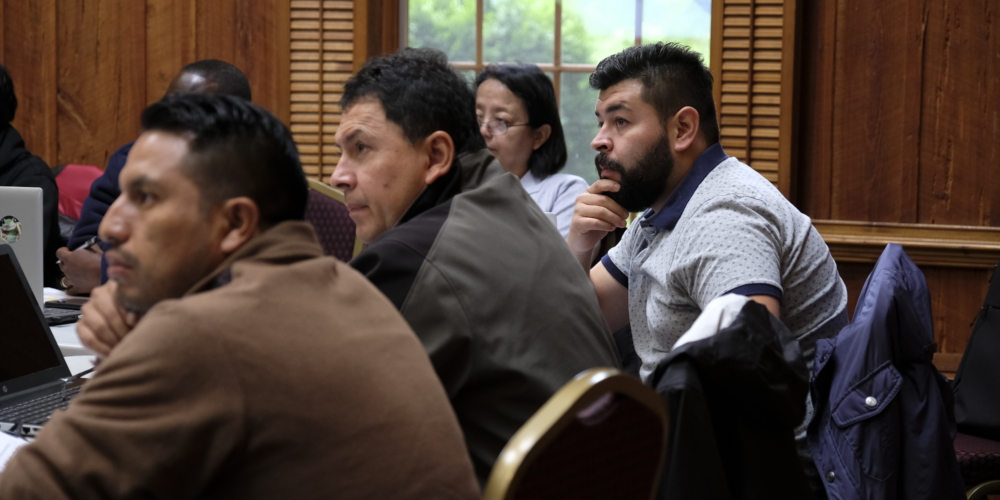Rainforest Trust Hosts Fourth Annual Partner Retreat for International Conservationists
Earlier this month, Rainforest Trust held the fourth annual Partner Retreat at the International Conservation House in Warrenton, Virginia. The Partner Retreat is a week-long opportunity for dedicated conservationists in the global Rainforest Trust network to connect with one another and staff. Each day, visitors participated in training and seminars in a variety of conservation management and outreach subjects.
The focus of the retreat has previously been on capacity building for chief executives and organizational leaders in conservation. But this year, the event focused on Rainforest Trust Conservation Fellows. “We changed the program this year as a reflection on our commitment to the Fellows and Guardians program,” said Mark Gruin, Acting CEO of Rainforest Trust. “We developed course content directly related to them to reinforce their personal and professional growth.”
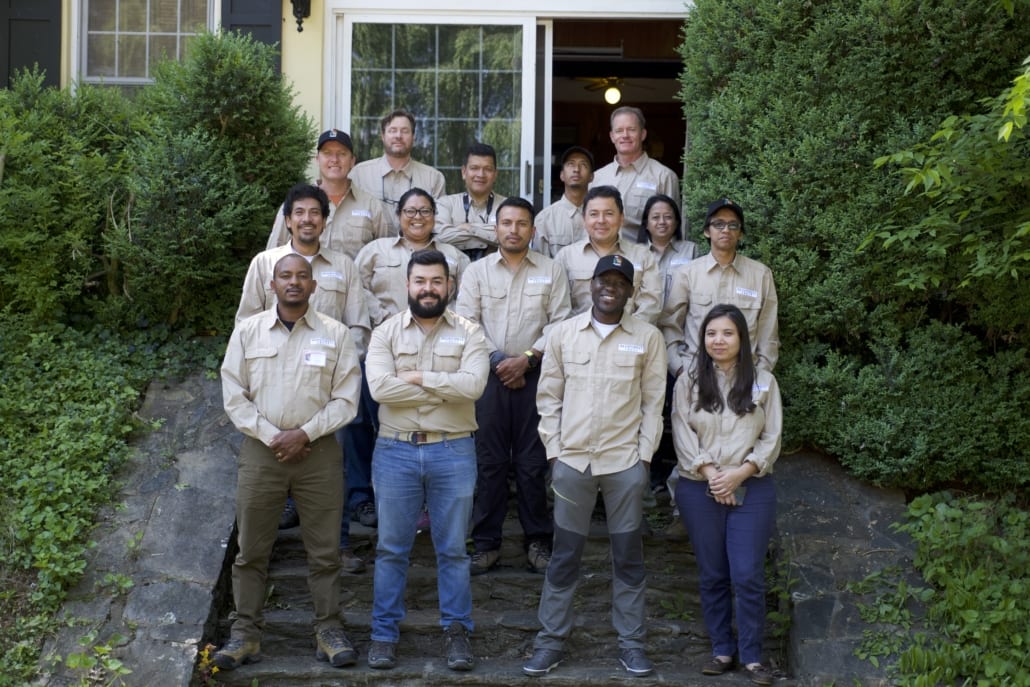
Rainforest Trust Conservation Fellows. Photo by Rainforest Trust.
In the past few retreats, Rainforest Trust offered workshops covering dense topics like fundraising strategies and long-term conservation planning. But Fellows are on the front lines of conservation and spend the majority of their time working in the field. So instead of packing in as much detail as possible throughout the week, the agenda focused on a few practical conservation management topics.
One of the most important aspects of the Fellows work is conservation monitoring. Several of the workshops focused on surveying protected areas, including a training on the Spatial Monitoring and Reporting Tool (SMART). SMART is a digital monitoring tool that allows users to measure, evaluate and improve the effectiveness of their patrols and conservation initiatives. Two experts from the conservation technology organization Wildlife Protection Solutions conducted the training, combining classroom and field work. They provided each fellow with a pre-loaded, field-ready smartphone and gave an overview of the software. The practice field exercises took place around Rainforest Trust’s campus. “The SMART training has immediate protection benefits,” said Gruin. “The Fellows will take a more-than-basic knowledge of the tool back to their organizations for more effective patrols and monitoring.”
In addition to monitoring techniques, Fellows learned various methods of conservation storytelling. The Rainforest Trust Outreach team developed a series of in-depth communications workshops to refine Fellows’ skills and contribute to their organizations’ outreach. Workshop topics included written storytelling and best practices for social media. The team also interviewed each participant about their work to better understand and communicate their inspiring stories with the world. Rainforest Trust digital experts offered courses on filming and photographing wildlife in their natural habitat, including the use of drone technology.
The retreat provided staff with the opportunity to talk with the Fellows face-to-face. This type of communication is usually difficult due to their busy schedules or remote locations. Throughout the week, Fellows often met with the Rainforest Trust Conservation team in small groups to discuss project-related issues.
Sharing stories from the field and socializing was a large part of the retreat. In addition to the daily lunches and dinners, Rainforest Trust staff volunteered their time to show the Fellows around Virginia. “For some of the Fellows, this is their first time leaving their country or even their village,” said Gruin. “Interacting with people from other cultures is so important for growth, not only amongst the Fellows, but for our staff as well.” This year, social activities included a local winery tour, walking around Historic Old Town Warrenton and visiting popular stores and restaurants.
The Fellows left with enhanced outreach and monitoring techniques, along with field supplies provided by Rainforest Trust. The retreat was an important success for all involved and Rainforest Trust plans to continue hosting Conservation Fellows at future retreats. “We hope the Fellows apply what they learned throughout the week in their work and find further motivation to continue paving the way in conservation,” said Gruin. “We recognize that our Fellows are the future of conservation and want to provide them with all the tools and training necessary to succeed.”
A collection of photos from the Partner Retreat. Photos by Rainforest Trust.
Header image: The Fellows enjoying Drone Training. Photo by Rainforest Trust.

